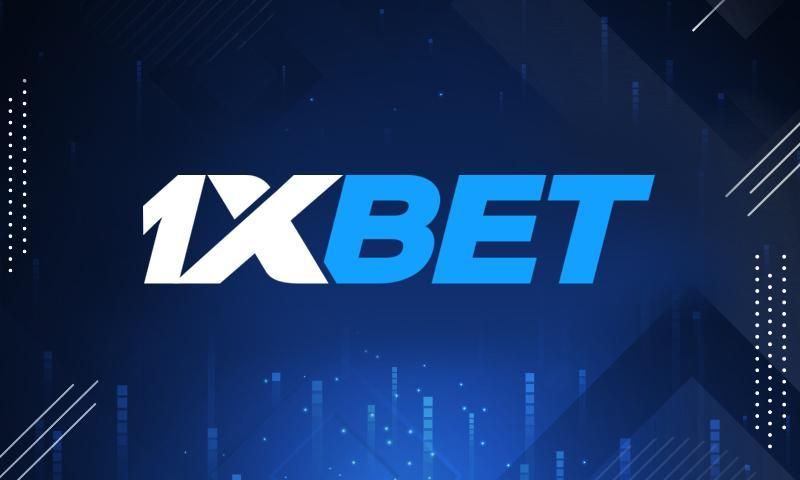1xbet32
online betting evolution, strategy, and responsible play

Online betting has transformed how people engage with sports, esports, and financial markets, bringing the thrill of wagering to smartphones and desktops alike — and for many users, the convenience of dedicated applications and simple account access is central to that experience, including options like online betting 1xbet login download.
The evolution of online betting traces back to the early days of internet commerce. What began as simple, text-based interfaces for placing bets has matured into full-featured platforms offering live streaming, in-play markets, cash-out options, and advanced statistical tools. Operators compete on user experience, reliability, market depth, and promotional offers, while regulators and payment providers have shaped the ecosystem through licensing, anti-fraud measures, and compliance requirements.
Understanding the basics of online betting starts with odds. Odds communicate the probability of an event and determine potential returns. Decimal, fractional, and American formats are the most common—decimal odds show total payout per unit staked, fractional odds show profit relative to stake, and American odds express returns relative to a $100 baseline. Knowing how to read odds is essential for comparing value across bookmakers and making informed decisions about where to place a wager.
Markets available to bettors are diverse. Traditional sports markets include match results, handicaps, totals (over/under), and futures. In-play or live betting allows wagers while an event is in progress, with odds updating in real time. Beyond conventional sports, many platforms offer markets for esports, politics, entertainment awards, and even weather. Spread and prop bets add layers of strategy and nuance, allowing more specialized or statistical approaches to wagering.
Good bankroll management is the cornerstone of long-term engagement in online betting. Treating betting as entertainment rather than a guaranteed income stream helps set expectations. Practical rules include setting a budget for wagering funds, staking a small, consistent percentage of that bankroll per bet, and avoiding chasing losses after an unfavorable sequence. Many experienced bettors use flat stakes or Kelly-based methods to manage exposure; the critical principle is protecting capital so play can continue through variance.
Research and information advantage are valuable but not infallible. Access to form, injury reports, head-to-head records, and situational statistics can improve the quality of decisions, but unpredictable factors—late-lineup changes, officiating decisions, weather, or in-play momentum—can overturn even well-reasoned predictions. Successful bettors treat analysis as probabilistic rather than deterministic, searching for edges where bookmaker pricing appears to understate true likelihoods.
Choosing the right operator matters for safety and satisfaction. Licensed and regulated sites are preferable because they must comply with standards for fair play, secure payments, and responsible gambling. Compare deposit and withdrawal methods, fees, processing times, available markets, and customer service responsiveness. Reading terms and conditions, bonus rules, and verification procedures before committing funds can prevent misunderstandings and delays.
Responsible gambling practices should be front and center for anyone engaging in online betting. Set deposit limits, use loss limits and session timers where available, and consider self-exclusion tools if play becomes problematic. Operators often offer resources and links to support organizations for gambling harm. Recognizing signs of trouble—preoccupation with betting, increasing stakes to recoup losses, and neglecting other responsibilities—is critical to seeking help early.

Technology has shaped both opportunities and risks in online betting. Machine learning and big data analytics enable sophisticated odds compilation and in-play pricing, while mobile apps and push notifications increase engagement and ease of access. Conversely, automation can enable problematic behaviors such as compulsive live betting; tools that encourage responsible use, like voluntary cooling-off periods and reality checks, help balance convenience with safety.
Promotions and bonuses can add value but come with caveats. Welcome bonuses, free bets, and enhanced odds attract new customers, while loyalty programs reward ongoing activity. Always read wagering requirements, odds restrictions, and withdrawal barriers. Bonuses can be useful when used strategically, but chasing promotional value without regard for underlying value and bankroll discipline often leads to poor outcomes.
Legal landscapes for online betting vary widely across jurisdictions. Some countries permit and regulate online wagering with licensed operators, while others restrict or prohibit it. Cross-border platforms complicate enforcement and consumer protection. Before registering with a site, confirm its license status, jurisdiction of operation, and whether it accepts players from your country. Local laws can affect taxation of winnings and legal recourse in disputes.
Esports and micro-markets have expanded the scope of online betting. Fast-paced esports events generate continuous betting opportunities, and novel markets—such as player-specific props or micro-outcomes within a single game—cater to bettors looking for high-frequency engagement. These markets demand quick decision-making and a clear understanding of event-specific dynamics.
Ethics and integrity remain central concerns. Match-fixing, insider information, and betting-related corruption threaten the fairness of competitions and the trust of bettors. Sports governing bodies and operators invest in monitoring systems, data sharing, and education to detect anomalous patterns and protect integrity. Bettors, regulators, and platforms share responsibility for preserving a transparent market.
For newcomers, a pragmatic roadmap helps: start by learning odds formats, practice with small stakes, experiment with simple markets like match outcomes, and track results to evaluate performance over time. Keep records of bets, stakes, and rationale to identify strengths and weaknesses in your approach. Treat any consistent success as the product of process rather than luck, and be prepared to adapt as markets and personal circumstances change.
Looking ahead, innovation will continue to reshape online betting. Advances in live data feeds, virtual and augmented reality experiences, peer-to-peer betting models, and blockchain-based solutions for transparency and payouts could redefine engagement. Regulators will likely focus more on consumer protections and preventing systemic harms, while operators balance personalization with ethical obligations.
Ultimately, online betting offers entertainment, excitement, and the chance to apply analytical thinking to sports and events. When approached with knowledge, discipline, and respect for legal and ethical boundaries, it can be an enjoyable pastime. However, awareness of risks and commitment to responsible play are essential to ensure the activity remains a positive part of users’ leisure time.
